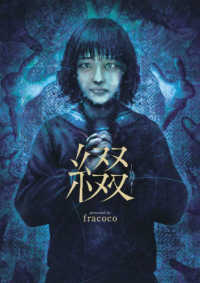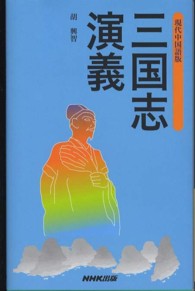- ホーム
- > 洋書
- > 英文書
- > Literary Criticism
Full Description
Critical studies of the graphic novel have often employed methodologies taken from film theory and art criticism. Yet, as graphic novels from Maus to Watchmen have entered the literary canon, perhaps the time has come to develop theories for interpreting and evaluating graphic novels that are drawn from classic models of literary theory and criticism.
Using the methodology of Georg Lukács and his detailed defense of literary realism as a socially embedded practice, Litcomix tackles difficult questions about reading graphic novels as literature. What critical standards should we use to measure the quality of a graphic novel? How does the genre contribute to our understanding of ourselves and the world? What qualities distinguish it from other forms of literature?
LitComix hones its theoretical approach through case studies taken from across the diverse world of comics, from Yoshihiro Tatsumi's groundbreaking manga to the Hernandez Brothers' influential alt-comix. Whether looking at graphic novel adaptations of Proust or considering how Jack Kirby's use of intertextuality makes him the Balzac of comics, this study offers fresh perspectives on how we might appreciate graphic novels as literature.
Contents
Introduction
Part I Theories
1 Literary Theory: The Relevant and the Real
2 Recuperating Realism: Lukács
3 Classic Novels, Classic Comics
4 Was Wertham Right? Comics as Antisocial and Subversive
5 The Balzac of Comics: Jack Kirby, World Building, and the Kirbyesque
6 Figurative Pseudonyms: Biography and Confession
Part II Case Studies
7 Josh Bayer
8 Nina Bunjevac
9 Simon Hanselmann
10 The Hernandez Brothers
11 Tommi Parrish
12 Yos hihiro Tatsumi
Conclusion: Our New Urizens
Acknowledgments
Notes
Index







